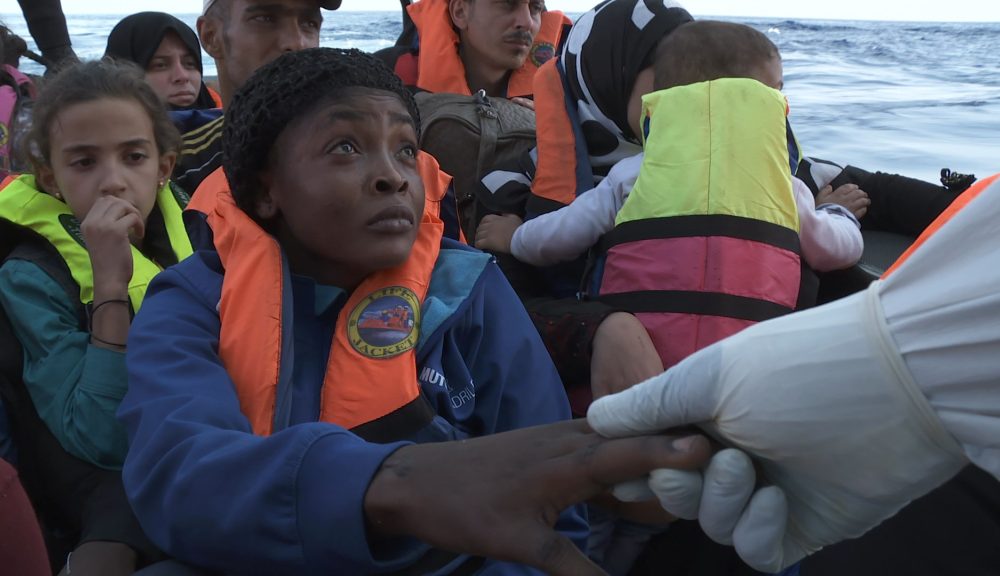Eldorado [2018] – A Potent and Unflinching Look at the Economics of the Refugee Crisis
Swiss film-maker and opera director Markus Imhoof has summarized the inglorious World War II history of ‘neutral’ Switzerland in his Academy-Award nominated ‘The Boat Is Full’ (1981). This powerful drama follows six refugees – five Austrian Jews and one Nazi deserter — crossing into Swiss Border. Switzerland did take limited number of refugees (old people, children, pregnant women, and Nazi deserters), although the strict regulations plus the ‘neutrality’ that preferred to preserve European economic system rejected quite a lot of displaced and hunted population. ‘Boat is Full’ intimately documents one such tense, unforeseeable situation of refugees in WWII Switzerland. Now after more than three decades, Markus returns to similar themes in documentary form and with more intensity (where the boats are literally full).
When Markus Imhoof was eight years old, his family took in 12-year old Giovanna from bombed-out Italy. The girl became a sister to him, and later a pen-pal as Giovanna was forced to return to Italy after the war, where the malnutritioned girl died in her teenage years. Through old letters and children’s drawing, Markus draws a fine portrait of the adopted refugee girl who made a strong impression on him in his formative years. His personal feelings find its echoes on the narrative’s second thread which leads him to Italy to capture the mass of bony black bodies, prodded with gloved hands, before setting foot on Italian shores. No, this isn’t recapped image of transatlantic slave-trade, but a picture of current migrant crisis although the end results are same: disenfranchisement and racial discrimination.
Markus’ heartbreaking account of modern refugees opens at a massive Italian navy vessel, which is deployed in the Mediterranean. He has gained unparalleled access to film ‘Operation Mare Nostrum’ (now terminated). We see inflatables and dingy boats brimming with people getting rescued by the Italian navy. Scrupulous and tireless white-robed people with surgical masks then classify, examine, and record them. One of the rescuers offer some truth to the exasperated group, “We’re not going to promise you paradise, but every day is going to be better.” Of course, these people don’t seem to seek land of milk and honey, but only the reassurance that they haven’t traded one purgatory for another.
Eldorado’s power lies in the compassionate shots, capturing the fatigued faces of displaced population, who become cogs in the vicious cycle of global trading. In one devastating moment, Swiss customs officers at a railway station stop a family of refugees from Italy trying to make an illegal crossing. The authorities provide the family with mineral water and protein bar, but suddenly a little girl angrily throws them off. She perfectly knows what follows this random gesture of kindness: a life of confinement, inactivity, and poverty.
Markus Imhoof’s personal stories take some time to smoothly connect with the other, sprawling narrative. But by the time Markus tenderly caresses the portrait of Giovanna on the grave plate in an Italian cemetery, we are as much engaged by the personal testimony as the shocking fate of asylum seekers. Apart from photographing and interviewing, the documentarian ably peels off the calm external layers to look into the mix of chaos and nonchalance that’s rampant in handling the refugees. In spite of getting access to navy ships and detainment camps, Markus does face many severe restrictions, which he rightly acknowledges. At one occasion, he talks of the mutiny that loomed closer on board as bad weather and overcrowding left many refugees to stay above decks in the storm. Markus, however, wasn’t allowed to film that. He also remarks on the long waiting period before given access to the camps. The audacity and curiosity to look beyond the picture provided by officialdom distances the documentary from the veiled observations of global media.
Eldorado (90 minutes) is a multifaceted and deeply humane documentary on the ugly realities and moral bankruptcy at the forefront of the refugee crisis.



